As God tells us in Matthew 11:15 that; ‘’Whoever has ears, let them hear’’, the Permanent Secretary (PS), Ministry of Trade, Industry and Cooperatives (MTIC), Geraldine Ssali has always listened to the nationalistic call by President Yoweri Museveni on hard work, integrity and patriotism.
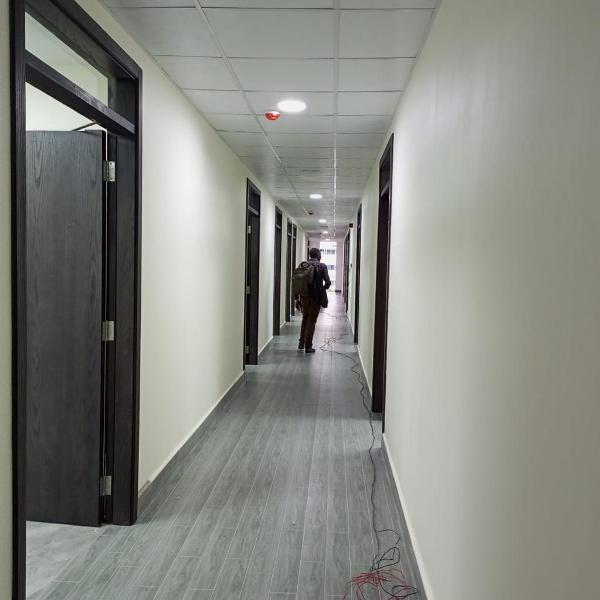
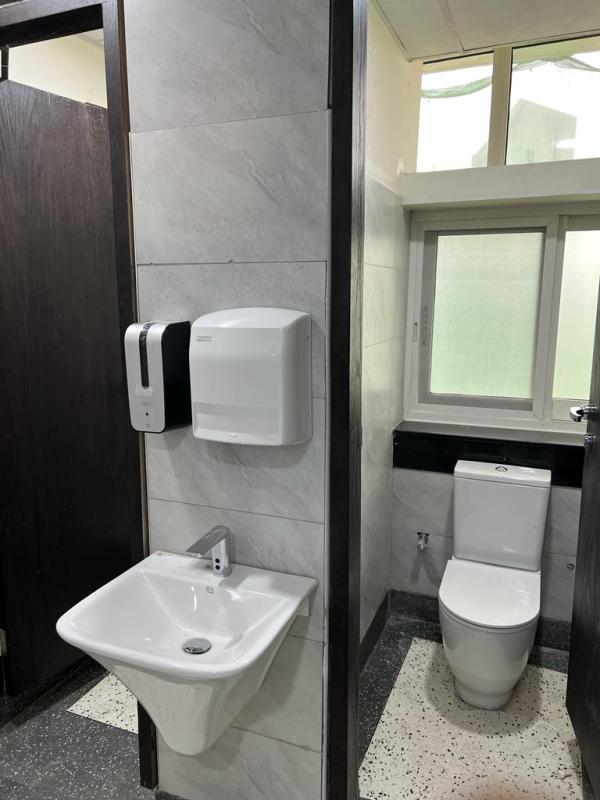
In what appears to be a patriotic move, Geraldine Ssali, a Ugandan accountant and business administrator saved public funds after renovating, improving and adding value to the Government owned premises, Farmers House which houses Ministry of Trade, Industry and Cooperatives. The building was constructed way back in 1964, by Lint Marketing Board.
The Ministry of trade submitted a request for supplementary budget to the Ministry of Finance, Planning, and Economic Development (MoFPED) in the first quarter of FY 2021/2022.
‘’This request had critical unfunded priorities including revamping cooperatives, improvement of the staff working conditions by securing accommodation at a cost of UGX. 5 billions among others’’, said the source.
The purpose of securing accommodation as requested in the first quarter of FY 2021/2022 was to improve the livelihood and working conditions of the staff at MTIC.
Whereas the issue of securing accommodation was such a critical and urgent issue, the funds were approved in the 1st quarter, in August 2021, however Ministry of Finance, Planning, and Economic Development (MoFPED) made the actual release of the funds (UGX 5 billions) at the end of the financial year in April 2022 as part of fourth quarter cash limits at the 4th quarter, no procurement process for accommodation premises could be undertaken in such a short time.
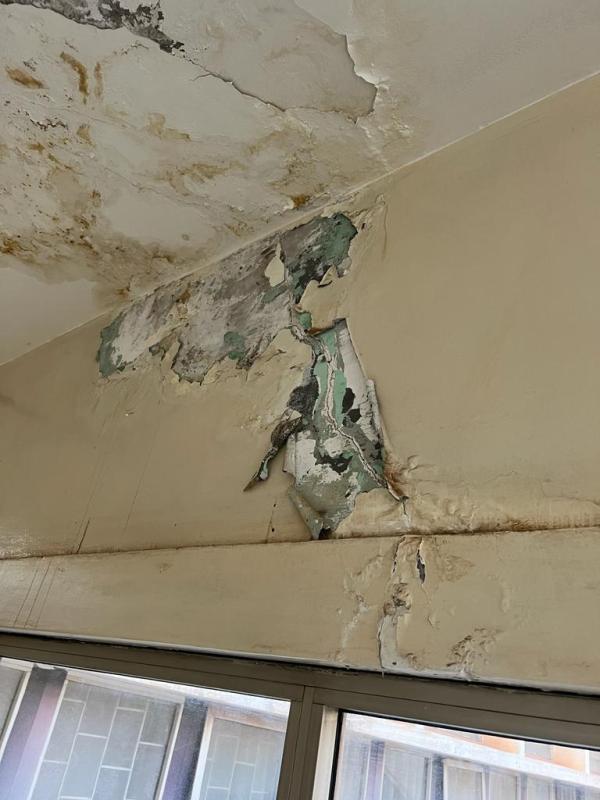
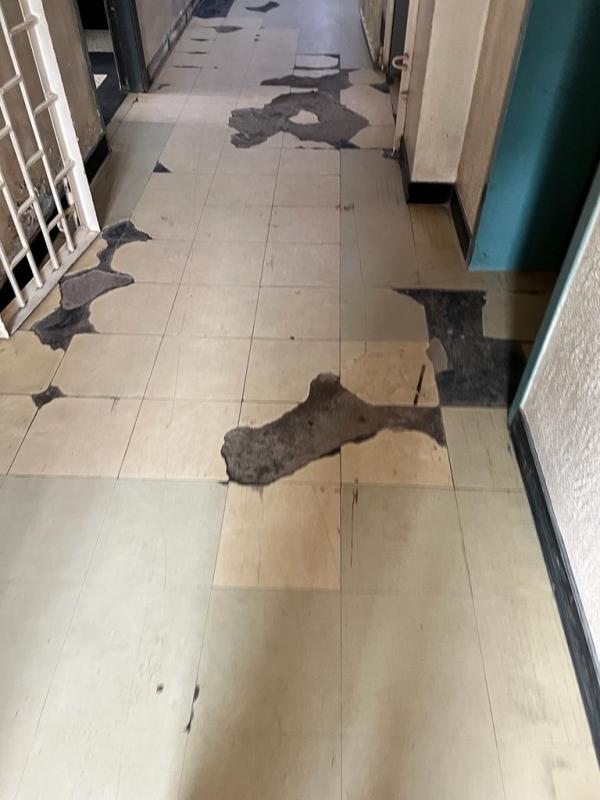
Section 45 (2) of the Public Finance Management Act 2015 provides that in the exercise of the duties under this Act, an Accounting Officer shall, in respect of all resources and transactions of a vote, put in place effective systems of risk management, internal control and internal audit.(Emphasis mine).
This in effect means that the Accounting Officer shall in the performance of her duties exercise a great degree of skill and diligence to effectively execute her functions as provided for under the Act.
Whereas the issue of securing accommodation was such a critical and urgent issue, the funds were approved in the 1st quarter, in August 2021, however Ministry of Finance, Planning, and Economic Development (MoFPED) made the actual release of the funds (UGX 5 billions) at the end of the financial year in April 2022 as part of fourth quarter cash limits at the 4th quarter, no procurement process for accommodation premises could be undertaken in such a short time.
This implied that the Ministry was constrained by time to carry out all necessary activities required to facilitate the procurement and expenditure of the funds before expiry of the financial year and also expected to absorb the said funds otherwise they would be returned to the Treasury as required by law under non-absorption of Funds.
The Ministry in the circumstances was left with two options; either: – i. To proceed with the plan to procure the rental space for office accommodation from the two sources that had been explored thus; – thus Kingdom Hall Plots 31A-35A & 37A-39A along Nile Avenue with 5,093 square meters and King Square Building, Plot 9, Portal Avenue, Kampala.
The preferred property – Kingdom Hall quoted UGX 84,731.per square meter.
The Ministry and her agencies had requested to occupy 5,000.square meters that would translate to UGX 423,655,399/= per month and UGX 5,083,864,788/= per annum. This rent is subject to revision at the end of the year.
OR;ii. To renovate, improve and add value to the Government owned premises, Farmers House which was built way back in 1964, by Lint Marketing Board.
Note, that the electrical systems, plumbing systems, internet connectivity; doors, windows and other furniture fittings were in a sorry state putting Government documents and staff at a huge risk of fire and health related risks.
This decision is a one-off expenditure that would save Government UGX 5,083,864,788/= in rent every year.
It should be noted that the whole Ministry operations are currently run on an approved annual budget of UGX 2,200,000,000/= under non-wage recurrent budget.
Therefore, spending annually UGX 5,083,864,788/= in rent every year, representing an increase of non-wage cost by 127.27% and 2.3 times the cost of the Ministry’s wage bill alone. The increase in rent would not therefore be viable, nor sustainable in the face of budget cuts and rationalization of government agencies to save public resources.
The objective of improvement of staff livelihood that was intended would end up suffering but would however affordably be achieved even with renovations of existing work space at their Traditional Home of Farmers’ House, which was really the intended purpose of the funds.
In drawing from the requirement of great skill and competences expected of an Accounting Officer, it would only be wise decision to renovate as opposed to incur an annual expenditure of UGX 5,083,864,788/= in rent every year.

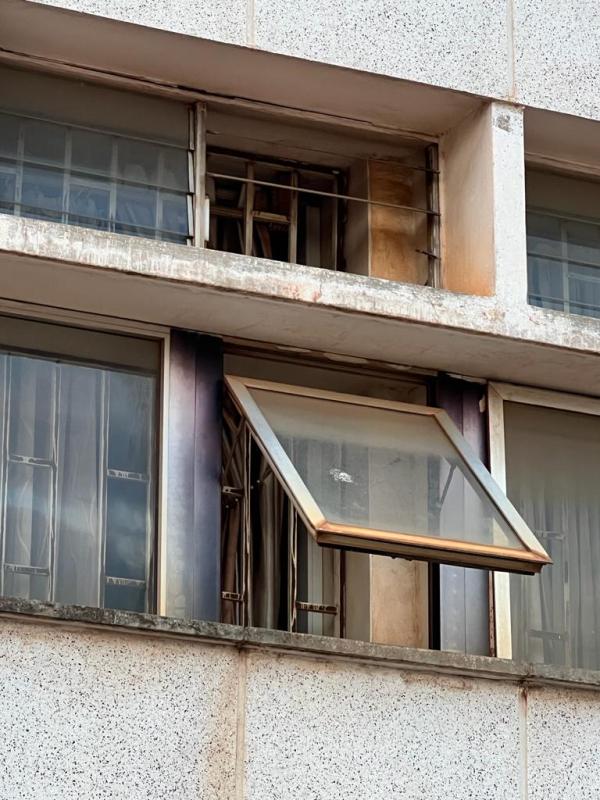
Having considered the above options, management felt it prudent to renovate the dilapidated Ministry Offices / Farmer’s House owned fully by the Government of Uganda under Uganda Property Holdings Ltd an institution which is under The President’s Office. This was based on the premises that the Ministry was only paying a small and affordable service charge of UGX 11,800,000/= per month to Uganda Property Holdings Limited (Under Presidents Office). It was financially viable for the Ministry to stay in its traditional home since the building has always been the traditional home of the Cooperators in Uganda and still achieve improved working conditions to its staff.
The following critical steps were under taken: –
- i) The Ministry engaged Uganda Property Holdings Limited and signed a memorandum of understanding to undertake general overhaul of the Ministry premises and replace the plumbing; electrical, internet connectivity; doors, windows and furniture fittings and document cabinets that had all become obsolete. (Minutes of meetings available)
- ii) Ministry engaged Ministry of Works and Transport, Office of the President and Ministry of Housing and Urban Development on the possibility of renovations and viability of farmers House Building to accommodate another floor, develop the drawings, undertake the structural integrity tests of the building, conducted feasibility studies and inspections, and come up with the bills of quantities which were used for the procurements of the Contractor. (Pse see correspondences attached)
iii) The Ministry engaged the Ministry Finance, Planning and Economic Development dated 20th May, 2022, for authority to utilize these funds for renovations and overhaul of the Office space to create a cheaper and safer working environment for staff (Pse see attachments).
It should be noted that there is no condemnation report by KCCA of Farmers House as Ministry of Works and Transport had established that the building was still in strong standing after producing a test report and a structural integrity report. (Copy of the Structural Integrity Report is available for inspection)
Upon establishing through a structural integrity test that Farmers house is in good standing and could even accommodate an extra floor, and applying the test of reasonable skill empowered on me by Section 45 of the Public Finance Management Act 2015, it only becomes reasonable to renovate the premises as opposed to costing the Government of Uganda and extra UGX 4,942,264,788 /= per month ( saving 97.21%) and yet again, the resources expended on renovation are to be recouped monthly by the Ministry whilst in better and cheaper premises, it was only reasonable to take up the renovation, improvement and value addition to Farmers House which was built way back in 1964, which shall not only benefit the tax payer, but create better service delivery for the Tax payer as Farmers House has been the home of the Cooperatives department for more than 30 years.
The Government of Uganda is currently undertaking rationalization of Government Agencies. In the next three years, under the RAPEX (Rationalization of Government Agencies) program, MTIC shall be home to an additional 3 Government Agencies, to wit, Uganda Warehouse Receipting Systems Authority (UWRSA), Uganda Export Promotions Board (UEPB) and Uganda Free zones Authority (UFZA).
This would mean that in addition to the 5,000 square meters initially quoted as needed, MTIC the Ministry would need an additional 1,615 to 2,500 square meters which would translate to more than UGX 8 billion spent on rent annually.
The whole purpose of rationalizing of the Government Agencies was to save Government expenses of rent and Boards expenses. By spending almost 8 billion in annual rent together with the added Agencies, MTIC would not achieve the government objective of saving monies on rent? Would renting have been a cost-effective method? Would government be in fact rationalizing resources? Would it achieve the purpose of rationalizing of the Government Agencies? Absolutely not.
In exercising a great degree of skill and diligence expected of an Accounting Officer under Section 45 (2) of the Public Finance Management Act 2015, it is only wise to renovate Farmers to not only save Government resources but have premises in good standing, cheap enough to not be costly to tax payers and in turn achieve the government Program of rationalization of Government Agencies in its true spirit.
Furthermore, the cost of fuel was utilized to relocate Office files, filing cabinets, furniture, computers and other movable offices items to Entebbe – Petroleum Authority of Uganda for temporarily safety in a phased manner as the offices premises is renovated on a floor-by-floor basis.
The Computer / IT costs was incurred to facilitate displaced staff for working at home. These computers are going to be re-used as different floors are repaired and shall be allocated and locked to use by staff of the Ministry even after this project, therefore, the project has long-term positive cost-effective solutions to the Ministry beyond the occupied space.
Background
The Auditor General in the audit notes states that an Accounting Officer has a primary responsibility of ensuring that there is no mischarge and diversion of funds through wrong coding of transactions.
They made reliance on Treasury Instructions 2017 specifically instruction 10.4.1 and state that the Accounting Officer shall be held personally liable for any wrongly charged accounts used for expenditure incurred by his/her own vote.
This stems from the monies utilized from the rent account to undertake renovation works on Farmers House.
It should be noted beforehand that Farmers House is a Government building owned through Uganda property holding limited and has been occupied by Ministry of Trade, Industry and Cooperatives for more than 30 years at minimal expenditure on rates and to be precise, MTIC spends an average of Ug Shs 11,800,000 per month.
Rent Expenditure/ service fee FY2021/2022UGX FY2022/23
UGX1: Service fee: 11,800,000X12 141,600,000 70,800,000
When one draws a contrast between the service fee currently paid by MTIC and what it would have spent on rents per month at Kingdom Kampala, currently the going rate for Kingdom Kampala is UGX 84, 731.per square meter (To UWRSA).
The Ministry and her agencies had requested to occupy 5,000. Square meters that would translate to UGX 423,655,399/= per month. A critical look at the said contrast is essential in determining the reasonable skill expected of an Accounting Officer under section 45(2) of the Public Finance Management Act 2015.
In determining whether diversion of funds actually occurred, it is essential to note the definition of diversion of funds.
Definition of diversion of funds
The Black’s Law Dictionary 9th edition defines diversion of funds as “to unauthorized or illegal use of corporate funds; Farracy v. Security Nat. Bank of Dallas, Tex., 4 S.W.2d 331,
Section 6 of the Anti-Corruption Act states on the matter of diversion of public funds; Diversion of public resources;
A person, who converts, transfers or disposes of public funds for purposes unrelated to that for which the resources were intended, for his or her own benefit or for the benefit of a third party, commits an offence.
When does diversion of public resources arise?
Hon. Lady Justice Margaret Tibulya In Uganda v Lwamafa Jimmy & 3 Ors (Criminal Session 3 of 2016) [2018] UGHCACD 11 on when diversion of public resources occurs states that the following must exist;
- There was conversion, transfer or disposal of the funds in issue.
- It was done by a public officer with authority.
- The funds were public funds.
- The conversion was for purposes un related to that for which the funds were intended.
- The diversion or transfer was to either the benefit of the Public Officer or for the benefit of a third party.
Does the renovation of Farmers House meet the test of diversion of public funds?
Farmers house according to Uganda Property Holding Limited official website a property managed for the benefit of the office of the president; the website further states that; UPHL, using its internally generated resources, manages Farmers House on behalf of the Office of the President; specifically for Service Delivery to tax payers and the public at large.
This therefore is a government property for all intents and purposes, the occupation, modeling, works and monies invested on the same would at the
same time benefit government and the public at the same time, on this
ground alone, it means the diversion didn’t benefit a third party but ultimately the public. Would this then amount to diversion, my answer would be no.
That notwithstanding, Ministry of works and transport, mandated to certify that Government agencies are housed in safe accommodation produced a structural integrity report stating that the building is a strong one and could even house another floor, therefore making renovations to it to bring it to good standing was recommended. That notwithstanding, the Attorney General certified the procurement process and cleared the contract for renovation.
The monies for renovation were not used for the benefit of the public officer or for the benefit of a third party but for the benefit of Government as certified by the Attorney General.
A critical look at the works being done on the building shows that works are progressing on well.
(You are invited to visit and take physical note of the progress of the Renovations)
The monies budgeted for were classified as rent, ordinarily, MTIC occupying a building managed by UPHL pays a standard charge. Accordingly, the standard charge can be classified as rent.
The Blacks Law Dictionary 9th edition defines rent as; RENT. Consideration paid for use or occupation of property. Whiting Paper Co. v. Holyoke Water Power Co., 276 Mass. 542, 177 N.E. 574, 575.
Compensation or return of value given at stated times for the possession of lands and tenements corporeal.
Would the use of money appropriated for rent to undertake an activity that amounts to rent classified as diversion of funds? The answer would be in the negative because;
- There exists an understanding between MTIC, Office of the President and UPHL to calculate the value of works done to improve the building and have a draw down from the service charge which amounts to a classification of rent as legally defined.
- The service charge or any definition so called by UPHL amounts to rent for all intents and purposes as properly defined by the law.
There being common understanding between a building manager and the tenant to have monies utilized in the renovation of a building drown down from the monthly charge for occupying the building that amounts to utilization of the funds for the budgeted purpose.
This therefore fails to meet the test of diversion of funds stated in section 6 of the Anti-Corruption Act.
Whereas instruction 10.3.1 of the treasury instruction 2017 provides that;
In reviewing payment requests, an Accounting Officer shall have a primary responsibility of ensuring that there is no mischarge and diversion of funds through wrong coding of transactions. An Accounting Officer shall be held personally liable for any wrong charge accounts used for expenditure incurred by his or her vote.
In this case, in the presence of an agreement to renovate Farmers house to drown down from rent, there cannot arise any element of mischarge or diversion of funds as the funds were properly utilized for a specific purpose that could be defined within the ambits of rent.
My specific conclusion on this matter altogether is that the monies for rent were properly utilized within a wider definition of rent, the claims by the Auditors is without basis as the undertaking of the Accounting officer is justifiable, done in good faith and within the Ambits of the law.
Section 6 of the Anti-corruption act was meant to cure anomalies of Accounting officers diverting public funds to their own use or typically “stealing”, however, in this case, the Accounting officer utilized monies for the benefit of Government and the public, in fact, the public shall have better access to services because the Accounting officer declared that there shall not be waste of public funds as farmers house shall be renovated and used for many more years to come by the same government.
The claims by the Auditors therefore fail to meet the test of diversion of funds stated in section 6 of the Anti-Corruption Act.
That notwithstanding, there was actually no diversion of funds as there was an administrative request by the Ministry for a virement of funds from Rent to Renovation to the Ministry of Finance, Planning and Economic Development which application was approved by the ministry of finance to support the renovation works. (Copy of the correspondences attached for ease of reference)
The Renovation works and the expenses made there under were legally spent and no such cases of diversion of funds would legally rise as the funds were spent as per their intended purpose.
It is also critical to note that the contractor for the renovation issued MTIC with a performance security as required by the contract, issued by Cairo Bank Uganda Ltd.
The contract for renovations was also properly cleared by the Attorney General as required by law.
The Accounting Officer properly exercised her great degree of skill, competence and diligence in choosing to renovate as opposed to the expensive annual recurrent rent as expected under Section 45(2) of the Public Finance Management Act 2015.
Whereas Section 45(2) of the Public Finance Management Act 2015 requires an Accounting Officer to exercise a great degree of skill and care, it is prudent that the accounting officer should be enabled to exercise a great degree of skill and diligence as opposed to being distressed for an activity wherein she conducted herself with a great degree of skill expected of an Accounting Officer under the law.
The Accounting Officer should also be equipped with human resource from the Accountant General’s office that is well equipped with sufficient accounting skills and competencies, in addition to honesty expected of Accountants as professionals to avoid further unnecessary audit queries.
Management Response 2: It’s true, that PS/ST approved the change of Ministry`s work plan to enable the Accounting Officer utilize the funds requested for renovation of office premises as opposed to rent.
Ministry opted to renovate Farmer’s House that is owned fully by the Government of Uganda and managed by Uganda Property Holdings Ltd, on behalf of Office of the President.
This was based on the premises that the Ministry was only paying a small and affordable user fee/service charge of UGX 11,800,000/= (VAT inclusive) per month to Uganda Property Holdings Limited (Under Presidents Office), to cater for regular maintenance of the premises. So effectively, the Ministry does not pay for rent per say.
The currently incurred user fee is 100% percent expended through the Income and Expenditure statements. Also refer to the MOU here attached signed by the Ministry for ease of reference.
You shall see that there’s no rental element therefore the requirement of treating renovation costs as a prepayment DOES NOT and CANNOT ARISE at any one time.
Being a GoU property, the Ministry is not obliged to recover the said amount through rental deductions.
The Ministry and government are one and the same and GOU is a direct beneficiary of the enhanced repairs and renovations in addition to fulfilling the original objectives of improved working conditions for having staff work from an improved work environment as opposed to the sunk rent cost that was going to be accumulated and paid over the unforeseeable period of tenancy by the Ministry to a private landlord at an exorbitant price.
Even if there was a book keeping oversight for sustained arguments sake, a book keeping error cannot possibly outweigh the costs implications of renting of government offices into expensive private land lord’s space! My decision of the Accounting Officer is therefore maintained.



